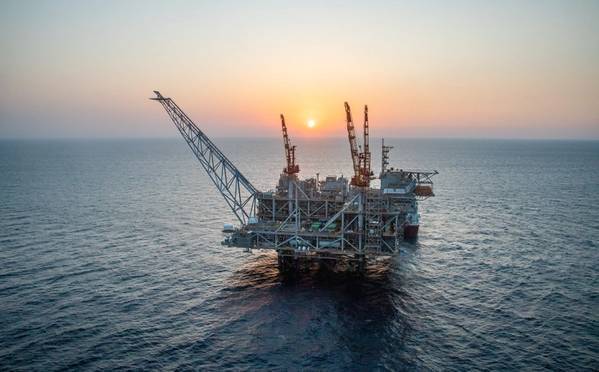
A subsea pipeline that would connect Israel's Leviathan gas field to Egyptian liquefied natural gas (LNG) terminals could double Israel's gas export capacity to Egypt, the Israeli energy minister said on Tuesday.
Israel started exporting gas to Egypt at the beginning of last year through an existing pipeline that runs offshore before crossing the north of the Sinai Peninsula overland. The gas can be liquefied at Egyptian plants of Idku and Damietta and re-exported to Europe or Asia.
Last month the two countries said they had agreed to plan the second pipeline.
The governments would promote the subsea pipeline "in order to double the amount of gas that we can send to the Egyptian LNG facilities," Israeli Energy Minister Yuval Steinitz said in an interview.
Leviathan field, located 130 km (80 miles) off Israel's coast, already supplies the Israeli domestic market and exports gas to Jordan and Egypt. Its shareholders include Chevron Corp and Delek Drilling LP.
"At the end of the day, it's up to the companies involved to decide, but since it's very realistic, I believe that it will take a year or two and you should see such a pipeline," Steinitz said.
Asked what capacity the new pipeline would have, he added: "I think to start with, we're speaking about a possible 10 bcm (billion cubic meters annually), but it might increase in the future."
Steinitz, in Cairo for a meeting of the East Mediterranean Gas Forum, said he was optimistic that demand for gas in Europe would be sufficient to make additional exports viable for at least the next 15 years, and that more rapidly growing demand in India also provided a promising market.
He also said that exports crossing the Sinai Peninsula by pipeline had not been affected by occasional attacks on gas infrastructure by militants operating in the area.
"You should always be worried, but so far there were no disturbances," he said. "We were already exporting 14 months ... and it's never stopped."
(Editing by Marguerita Choy)